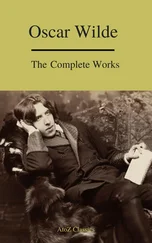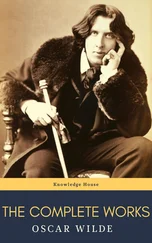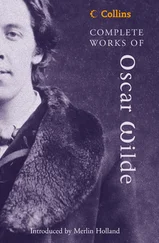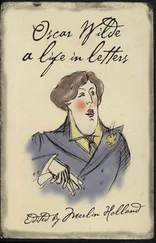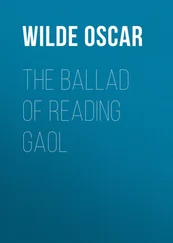Winston Churchill was once asked whom he would like to meet and talk with in after life, and he replied, without hesitation: ‘Oscar Wilde.’
Wilde’s first memorable work was The Happy Prince, which appeared in 1888. The stories in The Happy Prince are really poems in prose more than fairy tales for children; and yet the remarkable thing is that they appeal equally to children and adults.
In 1891 he produced a small volume of four stories which he had written some time previously. The book was called Lord Arthur Savile’s Crime and Other Stories, the other three tales being ‘The Canterville Ghost’, ‘The Sphinx without a Secret’ and ‘The Model Millionaire’. The first two of these stories have been dramatised and their substance has been copied on several occasions; they possess the light-hearted gaiety and insouciance that find their fullest expression in The Importance of Being Earnest, and show the buoyancy of my father’s spirit at that time.
A House of Pomegranates, my father’s other book of short stories – one can hardly call them fairy tales – appeared with illustrations by Charles Shannon, R.A. in the same year. This book completely puzzled the critics, who thought that the stories were meant for children and protested, quite rightly, that no child could understand them. This was followed by The Sphinx, which really dated from his Oxford days, and upon which he had worked at intervals ever since. The critics were again confused by the poem, which was really nothing more than an experiment with words. He revelled in finding rhymes for words such as hieroglyph and catafalque, which he rhymed with hippogriff and Amenalk.
In 1891, too, Oscar Wilde’s only novel, The Picture of Dorian Gray, appeared in book form, enlarged from the original which had been already published in Lippincott’s Magazine. The publication of this work was greeted with a storm of protest by the critics. The English Press was almost unanimous in its condemnation of the book. The idea of the book had first come to my father some years before. Hesketh Pearson tells the story of it in his Life of Oscar Wilde; ‘In the year 1884 Wilde used to drop in at the studio of a painter, Basil Ward, one of whose sitters was a young man of exceptional beauty…When the portrait was done and the youth had gone, Wilde happened to say, “What a pity that such a glorious creature should ever grow old!” The artist agreed, adding, “How delightful it would be if he could remain exactly as he is, while the portrait aged and withered in his stead!” Wilde expressed his obligation by calling the painter in his story Basil Hallward.’
By far the most interesting and entertaining book of essays that Oscar Wilde wrote was Intentions, in which he really gave rein to his imagination. In my own opinion, it is the most absorbing of all his works. The Critic as Artist occupies considerably more than half of it; its sub-title ‘with some remarks upon the importance of doing nothing’ shows the curious charm the word ‘importance’ had for him; it occurs in the titles of two of his plays, and is constantly cropping up in his essays. It is almost as though the word held a strange sonorousness for him and that he liked to roll it, if not round his tongue, then round his mind.
But the most interesting essay in the book is The Decay of Lying. The essay is in the form of a dialogue, the dominant theme being the vast superiority of Art over Nature, leading to the conclusion that Nature follows Art.
Oscar Wilde now entered into his final stage, the one for which he was destined, that of a dramatist. In 1891 he wrote Lady Windermere’s Fan, which he described as ‘one of those modern drawing-room plays with pink lampshades’. It was produced at the St James’s Theatre in February, 1892 by George Alexander. There were loud cries of ‘Author!’ at the end of the play and Wilde came onto the stage with a cigarette in his gloved hand and said: ‘Ladies and Gentlemen. I have enjoyed this evening immensely. The actors have given us a charming rendering of a delightful play, and your appreciation has been most intelligent. I congratulate you on the great success of your performance which persuades me that you think almost as highly of the play as I do.’
When Wilde had finished Lady Windermere’s Fan he retired to Paris and wrote his Biblical play Salome in French, dedicated to Pierre Louÿs who made certain corrections in the French, but did not otherwise interfere with it. Sarah Bernhardt was immensely attracted to this play, and she put it into rehearsal at the Palace Theatre in London, with herself in the title-role. However, the Lord Chamberlain refused to grant it a licence, on the ground that no play which contained Biblical characters was allowed to be performed on the English stage. This so annoyed Wilde that he announced his intentions of renouncing his British nationality and becoming a Frenchman, there being no such restrictions in France. As matters turned out, it is a pity that he did not carry out his threat.
In the summer of 1892 he wrote A Woman of No Importance, which was produced with immediate success by Herbert Beerbohm Tree at the Haymarket in 1893. Once again the audience rose to its feet and called for the author. This time remembering the bad impression he had made on the first night of Lady Windermere’s Fan, he got up in the box in which he was sitting and announced: ‘Ladies and Gentlemen, I regret to inform you that Mr Oscar Wilde is not in the house.’
On 3 January 1895, Oscar Wilde’s third important play An Ideal Husband was produced by Lewis Waller. The Prince of Wales was present at the first night. It was almost unprecedented for Royalty to be present at a first night, and it seemed now that Wilde’s future was assured. George Bernard Shaw’s comment on the play is worth repeating: ‘Mr Oscar Wilde’s new play at the Haymarket is a dangerous subject, because he has the property of making his critics dull…He plays with everything; with wit, with philosophy, with drama, with actors and audience, with the whole theatre.’
And so we come to Oscar Wilde’s last, and his most brilliant play, The Importance of Being Earnest. Wilde originally wrote the play in four acts, as he had written his other three major plays. He submitted it in this form to George Alexander who, with the object of making room for a ‘curtain raiser’, as was usual in those days, asked Wilde to cut it to three acts. When, four years later, Leonard Smithers published the play in book form, it was this three-act version that he had printed, and each subsequent edition has followed this pattern. Why this has been so is not clear, but the play as written by Oscar Wilde, with two extra characters in it, is the play as given in this volume. As Mr Philip Drake, who is responsible for this edition of Wilde’s works, remarked, it seems a pity that George Alexander should have a permanent influence on the play.
The Importance of Being Earnest was produced at the St James’s Theatre on 14 February 1895. Wilde had now reached the pinnacle of his success. Two plays of his were drawing crowded audiences in the West End, and actormanagers were falling over one another to beg him to write for them. Then the Marquess of Queensberry, with the object of attacking his son, Lord Alfred Douglas, because of his friendship with Wilde, launched a campaign of ungovernable fury on Wilde. The story has been told often enough; Alfred Douglas, whose only object was to see his father in the dock, persuaded Oscar Wilde to bring a prosecution for criminal libel against him. Lord Queensberry was triumphantly acquitted and his place in the dock was taken by Oscar Wilde, who was sentenced to two years imprisonment.
Читать дальше
Конец ознакомительного отрывка
Купить книгу


